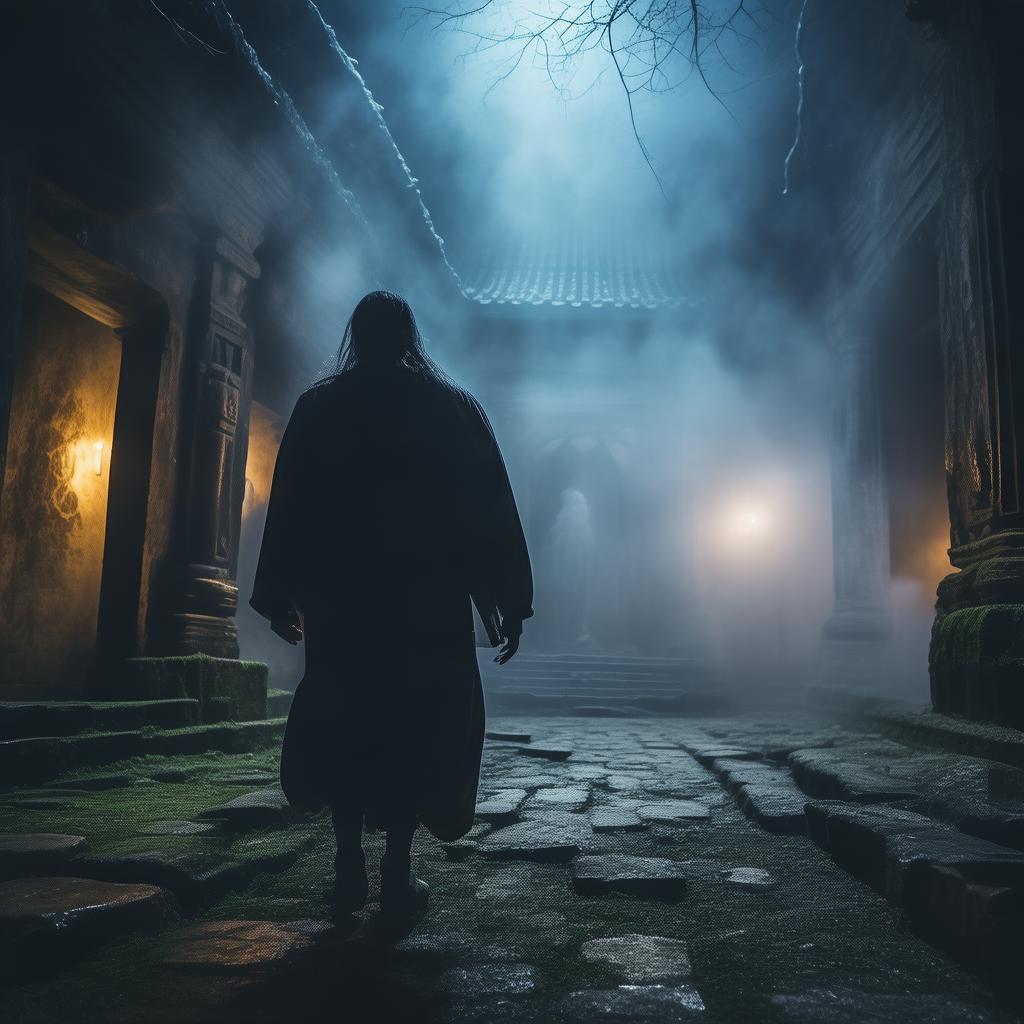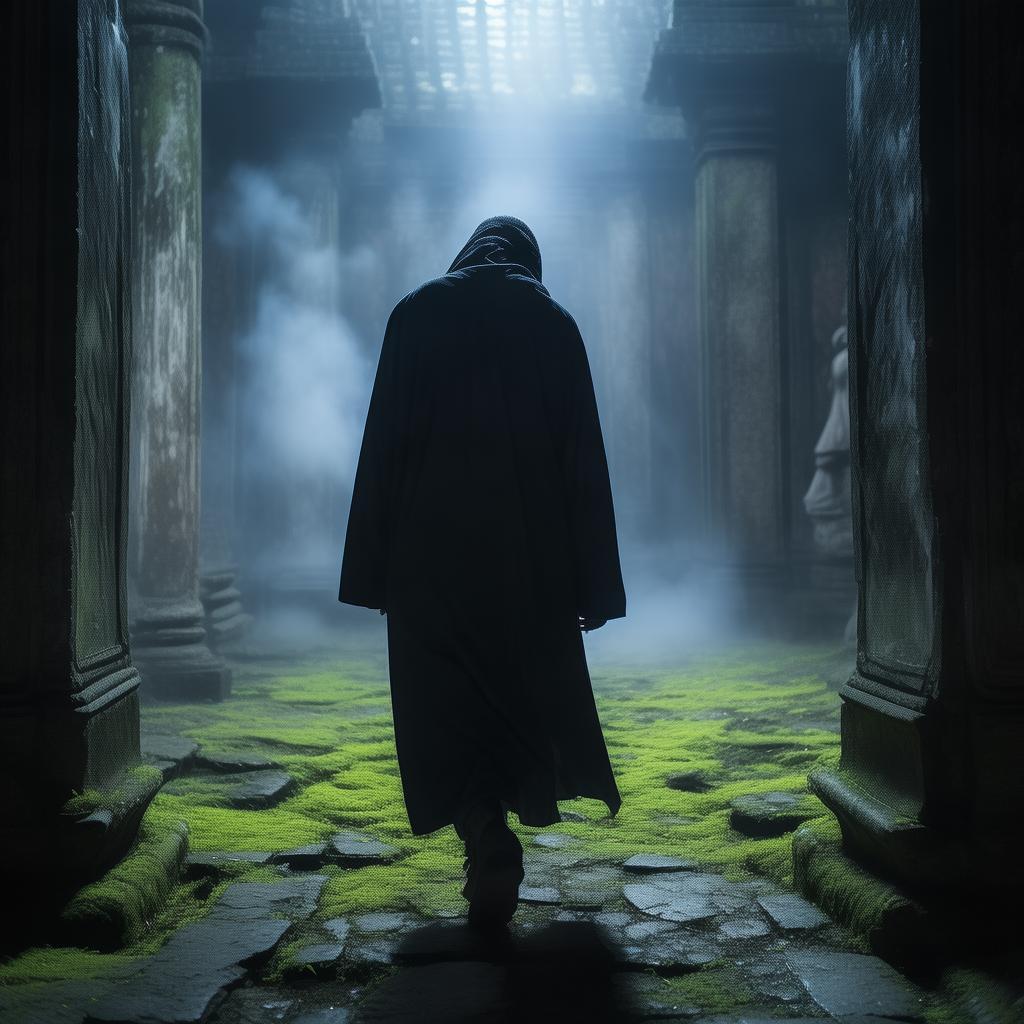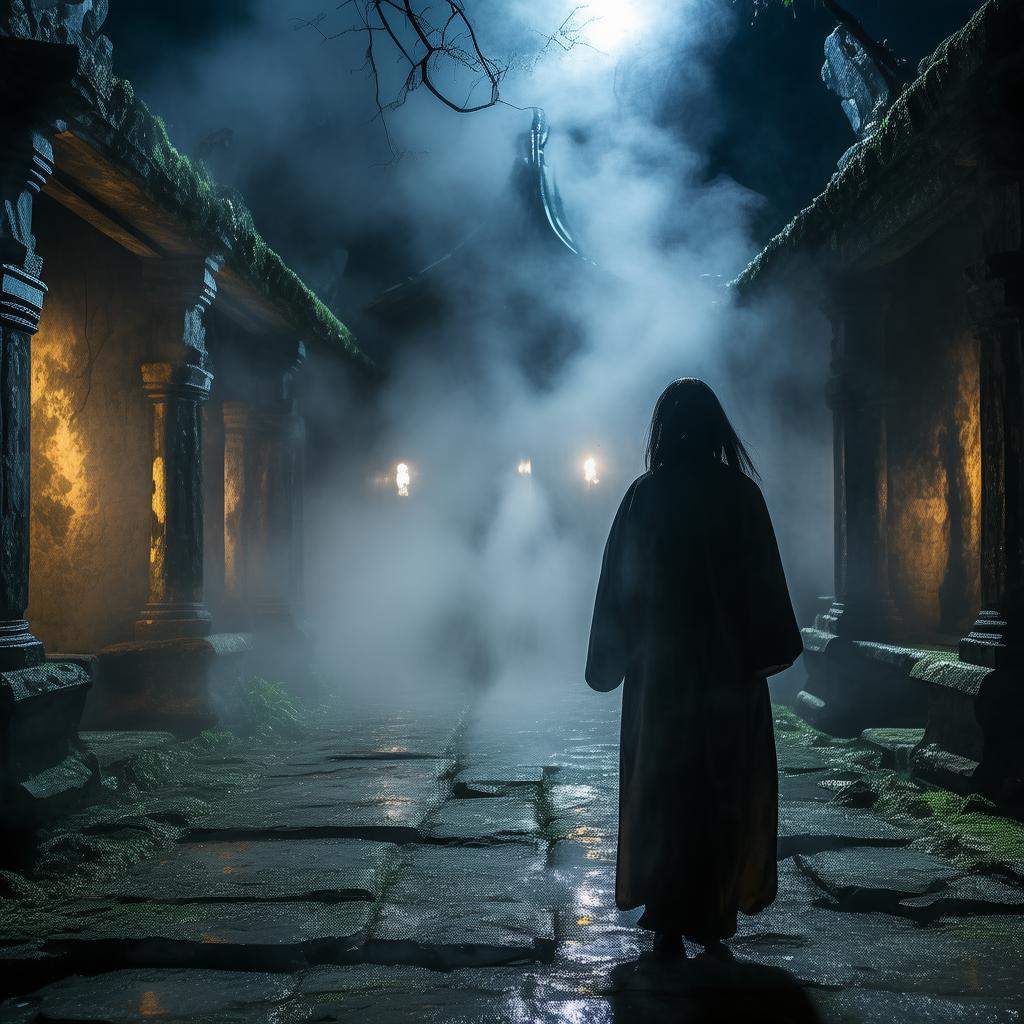The Symphony of Shadows: The Resurrection of Echoes
The night was shrouded in an eerie silence, save for the faint whispers that seemed to carry themselves on the wind. The grand concert hall stood as a testament to its former glory, now reduced to a decrepit shell, its grand chandeliers hanging by threads, and the plush seats worn by decades of neglect. In the heart of the city, it was a forgotten relic, a silent sentinel of the past.
The symphony was unlike any other; it was not a composition of human hands but a melody that seemed to have been woven from the very fabric of the air itself. It began as a soft, haunting hum, then swelled into a crescendo that made the very stones of the concert hall vibrate. The music was not just heard; it was felt, a tangible force that seemed to beckon those who dared to listen.
Three strangers found themselves drawn to the concert hall that night. The first was Li Wei, a young music student whose life was consumed by the pursuit of perfect pitch. The second was Zhang Hua, an aging detective whose retirement was marred by unsolved cases and unhealed wounds. The third was Xiao Mei, a curious and somewhat eccentric artist, whose canvases were the embodiment of her dreams and fears.
As they stepped into the concert hall, the music enveloped them, a symphony of the dead. It was as if the very walls were breathing, the air thick with the echoes of forgotten souls. The music was both beautiful and terrifying, a haunting reminder of life's fragility.
Li Wei's heart raced as he recognized a piece that was said to have been lost to time. "The Resurrection of Echoes," it was called, a composition that was said to have been written by a long-dead composer who had disappeared under mysterious circumstances. Could it be that the music was more than just a haunting wind?
Zhang Hua, his senses sharpened by years of investigation, began to piece together clues from the scattered fragments of the symphony. He noticed that the music seemed to follow a pattern, each note and rest a part of a greater puzzle. He shared his observations with the others, and Xiao Mei, with her artistic intuition, added a layer of visual symbolism to the equation.

As they delved deeper into the mystery, they discovered that the concert hall was not just a venue for music but a sanctuary for the spirits of those who had perished there. The legend spoke of a curse, a spell cast by the composer himself, which would awaken the dead when the symphony was played.
The music grew louder, more insistent, and the three strangers felt an inexplicable pull towards the stage. There, amidst the ruins of the concert hall, stood a grand piano, its keys glistening with dust but still beckoning them forward.
Li Wei approached the piano, his fingers trembling as he laid them on the keys. The music filled the room once more, a force of nature that seemed to consume everything around it. Zhang Hua and Xiao Mei watched in awe, their breaths held as the music reached its climax.
Then, something strange happened. The walls of the concert hall seemed to shiver, and shadows began to move, the music now a living force, animating the very stones. The dead were rising, their faces twisted with rage and sorrow, as if they were bound by the composer's curse to wander the concert hall for eternity.
Li Wei's heart pounded as he played, the music a shield against the approaching spirits. Zhang Hua and Xiao Mei, with their combined knowledge and intuition, fought back, using their skills to banish the dead, one by one.
As the final note echoed through the hall, the spirits faded, their forms dissolving into the air. The concert hall was once again silent, the music a thing of the past. Li Wei, Zhang Hua, and Xiao Mei collapsed in relief, their victory a bittersweet one.
In the days that followed, the legend of the concert hall's haunting symphony grew, a tale of bravery and sacrifice. The three strangers, who had once been strangers themselves, had come together to face the unknown, their bond forged in the heat of the battle.
And so, the concert hall remained, a silent sentinel of the past, its music a haunting reminder of the delicate balance between life and death. The symphony of shadows, once a source of terror, had become a symbol of hope, a testament to the enduring power of friendship and the indomitable spirit of those who dare to confront the unknown.
✨ Original Statement ✨
All articles published on this website (including but not limited to text, images, videos, and other content) are original or authorized for reposting and are protected by relevant laws. Without the explicit written permission of this website, no individual or organization may copy, modify, repost, or use the content for commercial purposes.
If you need to quote or cooperate, please contact this site for authorization. We reserve the right to pursue legal responsibility for any unauthorized use.
Hereby declared.









